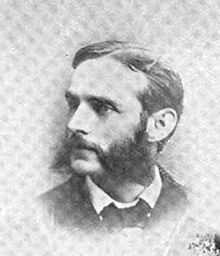Young People's Society of Christian Endeavour
The Young People's Society of Christian Endeavor was a nondenominational evangelical society founded in Portland, Maine, in 1881 by Francis Edward Clark. Its professed object was "to promote an earnest Christian life among its members, to increase their mutual acquaintanceship, and to make them more useful in the service of God."
Organizational History
Formation

The Young People's Society of Christian Endeavor is an interdenominational Christian youth society which provided a structure for church youth to work together to know God in Jesus Christ. After the Society was described in a magazine article in 1882 the Society grew initially in the United States and then spread throughout the British Empire and beyond. The movement peaked during the last decade of the nineteenth century and then declined as denominational youth societies imitated and adapted the forms of Christian Endeavor. The Society continues in various locations into the twenty-first century.[1]
The first Christian Endeavor Society was formed on Feb 2, 1881 in Portland, Maine, under the direction of Francis E. Clark. Rev. Clark founded the first national church youth organization, Christian Endeavor, the forerunner of the modern denominational "youth fellowship". The society was formed in order to bring youth to accept Christ and work for Him. The youth were shown that the church cared for young people. The Society enabled youth to express themselves while participating in useful tasks. It stressed a devoted, evangelistic spirit that was expressed in the Christian Endeavor pledge. Christian Endeavor created publications for youth, devised youth programs, and sponsored events. Christian Endeavor was maintained through private donations that often came from youth.[2]

Christian Endeavor began as a small group of youth that met at the house of their minister. Within a year, six societies had formed. After two years, the number of societies had grown to fifty-six. The organization expanded rapidly as it grew from a single church society into a world movement. By the end of the 19th century, Christian Endeavor was in the headlines of many major American newspapers. By 1906, 67,000 youth-led Christian Endeavor societies had been organized worldwide, with over four million members. Christian Endeavor took up many causes and was influential in supporting the temperance movement in the 1920s.
Christian Endeavor began extensive publications in 1886. World conventions were held to address major issues. In 1887, Clark was elected president of the United Society, and in 1895 he was chosen as the World President of the Christian Endeavor Union. Clark held this position until his death in 1927. Daniel A. Poling then assumed the presidency. Christian Endeavor societies met at the state level for local control and met in World Conventions at intervals of three to six years. (World Conventions were held in Grand Rapids, Michigan in 1937 and 1951.) The organization's world headquarters moved from Boston, Massachusetts, to Columbus, Ohio, in 1952. Christian Endeavor is still operating today throughout the world; their activities are widely reported on international and state Christian Endeavor Websites.

Drawing on ideas taken from other pastors, especially Presbyterian Theodore L. Cuyler from Brooklyn, Clark shaped the concept of "youth ministry" by asking young people in his Williston Congregational Church to sign a two-sentence pledge described in his book published in 1882, The Children and the Church, and the Young People's Society of Christian Endeavor, as a means of Bringing Them Together.[3] Previously youth had been classified with children and not considered capable of active Christian involvement.[4]
Development
The Christian Endeavor movement is historically considered to be the forerunner to and father of modern day youth ministry. Its original office, the International Society of Christian Endeavor (CEI), is currently headquartered in Michigan, USA. After more than 130 years or service for Christ and his church, CEI continues to raise the standard of youth in ministry as the measure of success. In addition to leading the conversation of youth ministry as a means of mentoring and mobilizing young people for a lifetime of service for Jesus Christ, CEI is also creating resources that promote student-led, adult-mentored ministry as the standard in youth work once again. The original documents, constitution, pledge, and principles for starting a Christian Endeavor Society are distributed freely by CEI, so churches can take steps to helping young people discover, develop, and deploy a God-sized mission for their lives today.
Literary References
Christian Endeavor meetings are described in both "Cloudy Jewel" and "The Girl from Montana", by Christian author Grace Livingston-Hill.
Footnotes
- ↑ Senter III, Mark H., When God Shows Up; a History of Protestant Youth Ministry in America (Grand Rapids: BakerAcademic, 2010), 151-168.
- ↑ Clark, F.E., Ways and Means For the Young People's Society of Christian Endeavor (Boston: D Lothrop Company, 1890); Pratt, Dwight M., A Decade of Christian Endeavor, 1881-1891 (New York: Fleming H. Revell Company, 1891).
- ↑ Clark, F. E., The Children and the Church and Young People's Society of Christian Endeavor as a Means of Bringing Them Together (Boston: Congergational Sunday School and Publishing Society, 1882), 83.
- ↑ Senter III, Mark H., When God Shows Up; a History of Protestant Youth Ministry in America (Grand Rapids: BakerAcademic, 2010), 154-168.
External links
| Wikimedia Commons has media related to Christian Endeavor. |
- Official UK Website
- "The World for Christ". National Magazine. February 1906.